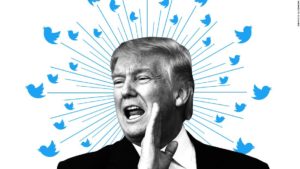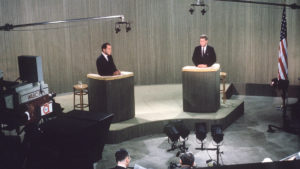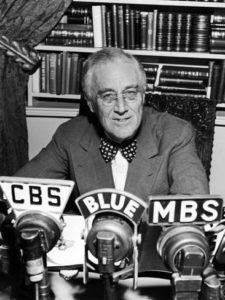I think most of us envision that the way we make important decisions about our lives is based on thoughtful consideration and research. For example, the candidate we choose for President is something we think carefully about, and we are issue-driven and engaged in the election process. The truth, however, is far more nuanced. Most communication theory explains that the way humans make decisions is much more emotionally-driven, based on more basic and primal responses such as fear (Cialdini, 2008).
Like much of America (and the world), I was surprised by the election results of Tuesday, November 8, 2016. I stared at my TV in bewilderment, as then-candidate Donald Trump received more and more electoral college votes. Like many others, I assumed that it was a small number of people that connected to his populist message, and the media I consumed, and those I spoke with, created a vacuum of confirmation bias that didn’t allow me to see a more comprehensive picture of our country.
In reality,President Trump did lose the popular vote, by over 2.8 million, but that’s another conversation for another day. Having lived through his presidency for the last two years I have often found myself wondering what exactly he is excelling at, and how do those who voted for him chalk up his successes? His administration is in chaos, his leadership style is highly controversial, and it is easy to fact-check his lies, which are numerous, public and often nonsensical.
My argument today, however, is that President Trump excels at the preferred communication methods of his constituents: social media, and in particular, twitter. He was elected in large part because of his unparalleled skill at connecting directly to his base and speaking to them in a way that demanded loyalty and engagement.
We often assume that a president’s job is more about governing, working with Congress to draft legislation, and to make real and meaningful change for our Country. However, something that I think we often forget is that perception is reality, and your administrative accomplishments don’t mean anything unless people who care know about them. President Trump is to twitter what President Roosevelt was to the radio.
Our great political leaders are formed in the conclave of our communication trends, and they are only as successful as the medium allows.
Take, for example, the first televised debate between Nixon and JFK in 1960. When this debate took place, Vice President Nixon was the favored candidate to win. However, Senator Kennedy strode out on stage, tall, handsome and self-assured, and America fell in love. I think most historians would agree that President Kennedy didn’t stand a chance until the medium of television entered the political landscape and forever changed how politicians campaigned.
President Roosevelt commanded the medium of radio through his fireside chats in the 1930’s and led our country through two of our greatest moments of crisis: World War II and the Great Depression. He was elected to a historic four terms in office, and he was able to connect directly with the American people, since 90% of American households owned a radio before the advent of television. FDR adopted an informal and conversational tone, and reassured the American public at a time of great uncertainty.
It’s not that previous presidents or presidential candidates didn’t understand the value of communication, because they obviously did. But in the instance of the presidential election in 2016, we underestimated the power of direct communication through an evolving social media landscape, and over-emphasized the value of facts and truth. In reality, we’ve never been big on truth, and we much prefer easily consumable pieces of information that align with our existing beliefs.
So how, as communication professionals (and even those who aren’t involved in politics), can we learn from this historic moment?
- Know your target audience and your primary stakeholder group, and address how they want to be communicated with and adapt as they adapt.
- Be flexible and fluid in your communication style since the public wants to feel a connection to the person with whom they are engaging.
And with the right communication strategy, maybe you could help launch the career of the next President of the United States.
Source:
Cialdini, R.B., (2008). Influence: Science and practice (5th). Allyn and Bacon.




4 Responses to Trending Communication and How it Shapes the Most Powerful Job in the World